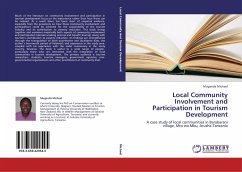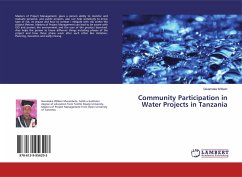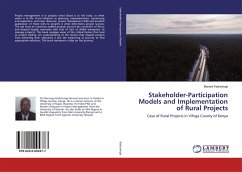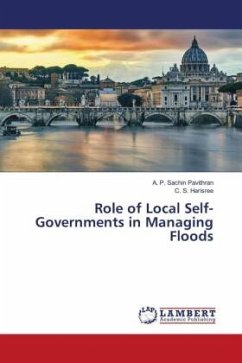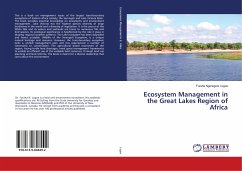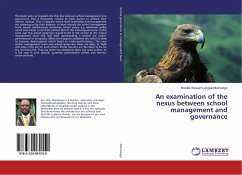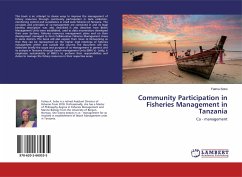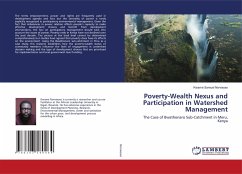
Poverty-Wealth Nexus and Participation in Watershed Management
The Case of Bwathonaro Sub-Catchment in Meru, Kenya
Versandkostenfrei!
Versandfertig in 6-10 Tagen
41,99 €
inkl. MwSt.

PAYBACK Punkte
21 °P sammeln!
The terms empowerment, power and rights are frequently used in development agenda and fora but the centrality of power is rarely explicitly recognized in participatory environmental management. Given the fact that imbalances in power relation affects people's capacity to make effective development choices and benefit from development interventions, the foci on participatory management should take into account the issues of power. Poverty rates in Kenya have not declined over the past decade. The picture at the local level cannot be determined comprehensively but studies have agreed that povert...
The terms empowerment, power and rights are frequently used in development agenda and fora but the centrality of power is rarely explicitly recognized in participatory environmental management. Given the fact that imbalances in power relation affects people's capacity to make effective development choices and benefit from development interventions, the foci on participatory management should take into account the issues of power. Poverty rates in Kenya have not declined over the past decade. The picture at the local level cannot be determined comprehensively but studies have agreed that poverty does have its effects on the environment. Using the Bwathonaro sub-catchment in Peru as a case study, this research establishes how the poverty-wealth status of community members influence the level of engagement in watershed decision making and the type of development choices that are prioritised for implementation and local government level funding.



